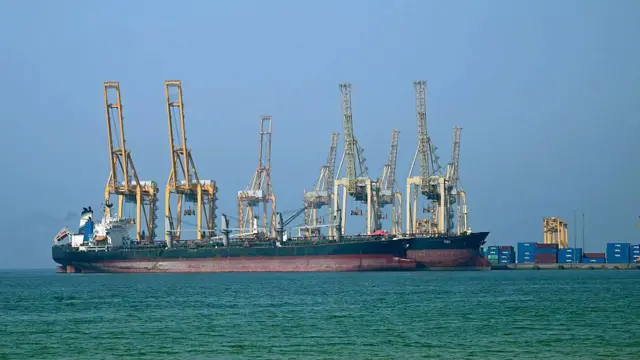Global Leaders Confront Turmoil and Trade Wars at ‘Summer Davos’

Oil prices have recently dipped to their lowest levels in two weeks following Israel’s acceptance of a ceasefire proposal from U.S. President Donald Trump regarding tensions with Iran. However, business leaders gathered at a significant economic summit in Tianjin, China, are expressing deep concerns about the global economy’s stability and growth prospects. The escalating conflict in the Middle East has overshadowed previous worries about trade, tariffs, and inflation, raising alarms about the potential for a prolonged period of economic stagnation.
Geopolitical Tensions and Economic Concerns
The rapid escalation of hostilities between Iran and Israel, which has drawn in the United States, has shifted the focus of global economic discussions. Borge Brende, president and CEO of the World Economic Forum (WEF), emphasized the unprecedented complexity of the current geopolitical landscape. He warned that failure to revive economic growth could lead to a decade marked by stagnation. The WEF, known for advocating free trade and globalization, faces challenges as Trump’s tariff policies disrupt supply chains and complicate business planning.
Jeffry Frieden, a professor at Columbia University, described the current environment as one of “radical uncertainty.” He noted that businesses must adapt to the changing dynamics of international economic and political affairs. The implications of geopolitical risks are significant, particularly as rising oil prices can increase operational costs for producers. This, in turn, may lead to higher consumer prices, dampening demand and complicating central banks’ efforts to manage interest rates.
Impact on Global Oil Supply and China’s Economy
Geopolitical tensions have far-reaching consequences, especially concerning oil supply. Iran’s threat to close the Strait of Hormuz, a vital transit route for global oil, poses a significant risk to countries like China, which relies heavily on Iranian oil imports. Chris Torrens, head of China at APCO, highlighted that disruptions in oil supply could severely impact China’s machinery and high-tech sectors, which are crucial for the country’s economic growth.
The WEF event occurs at a pivotal time for China’s economy, which has been grappling with a prolonged property crisis, high unemployment, and sluggish domestic spending. Despite these challenges, China is on track to meet its official growth target of around 5%, potentially contributing nearly 30% to global growth this year. Torrens suggested that the summit presents an opportunity for China to position itself as a leader in globalization, despite ongoing market access issues.
China’s Economic Strategy and Future Growth
As the trade war initiated by Trump threatens China’s manufacturing exports, the country is increasingly looking to emerging technologies, such as Artificial Intelligence (AI), as new growth avenues. Mirek Dusek, managing director at WEF, noted that while trade has historically driven growth, technological advancements hold significant potential for enhancing competitiveness. According to PwC, AI could boost global growth by 15% by 2035.
Despite the optimism surrounding technological innovation, the specter of tariffs looms large over business leaders at the WEF event. With Trump’s tariff pauses set to expire soon, uncertainty prevails regarding the future of the global business landscape. Frieden pointed out the difficulties businesses face in making long-term plans amid fluctuating tariff levels, complicating decisions about whether to relocate operations or maintain existing ones.
Observer Voice is the one stop site for National, International news, Sports, Editor’s Choice, Art/culture contents, Quotes and much more. We also cover historical contents. Historical contents includes World History, Indian History, and what happened today. The website also covers Entertainment across the India and World.

